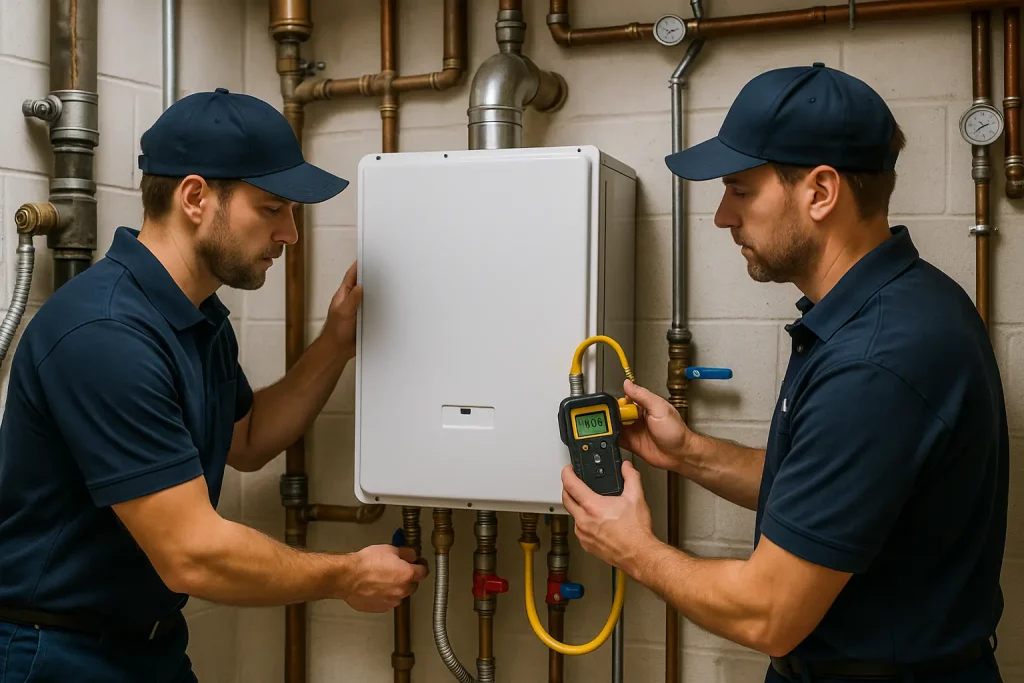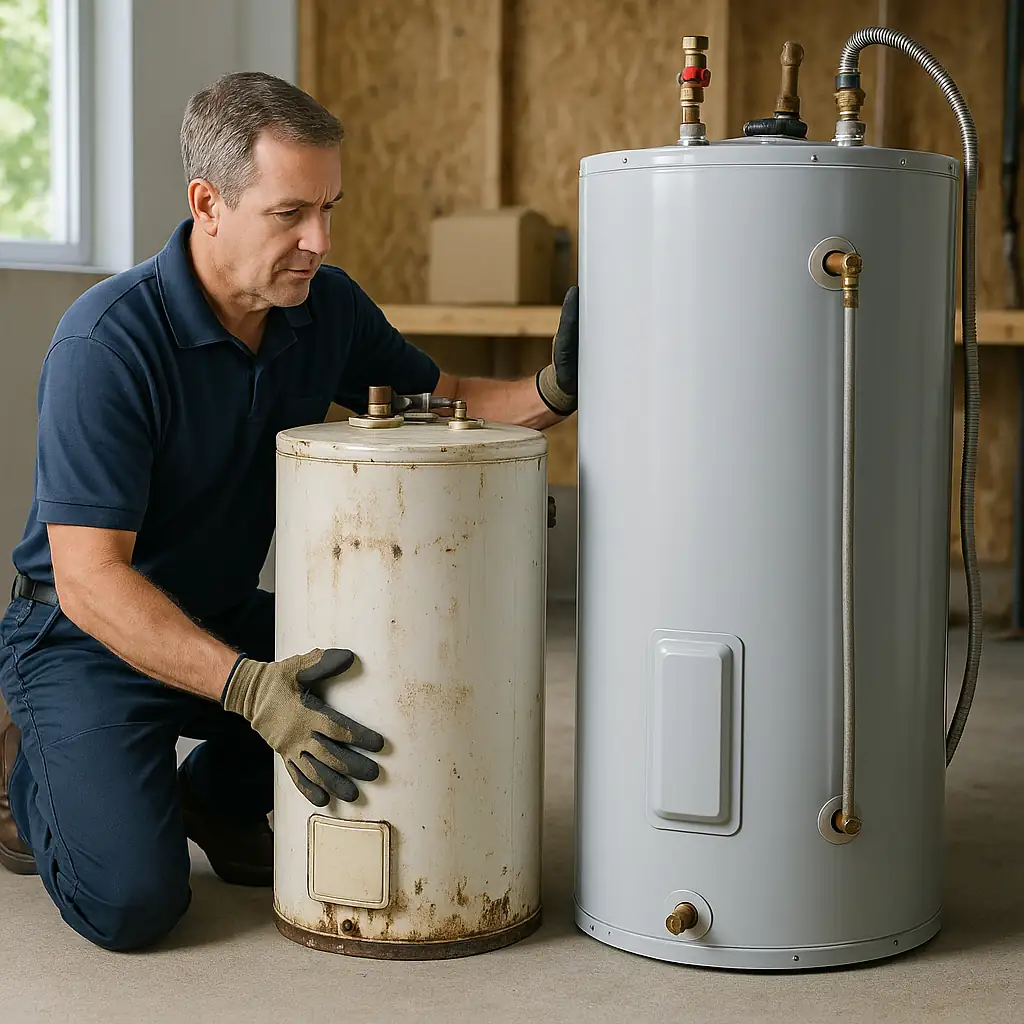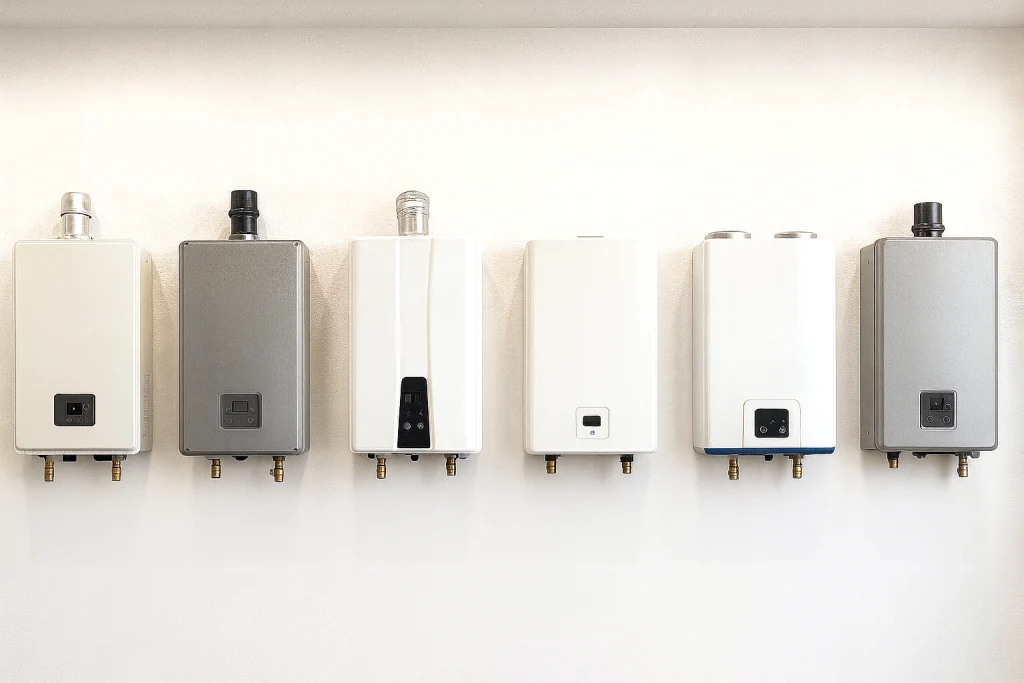Everything You Need to Know About Conventional Storage Tank Water Heaters

When it comes to ensuring a steady supply of hot water in your home, conventional storage tank water heaters have been a trusted staple for decades. These units work by maintaining a reservoir of heated water, ready to use whenever you turn on a faucet or start a load of laundry. For many homeowners, the simplicity, affordability, and reliability of these systems make them a smart choice. Visit https://anytimeplumbing.net/conventional-storage-tank-water-heaters/
How These Systems Work
A traditional storage tank water heater typically comprises an insulated tank where water is heated and stored until it’s needed. The heater is equipped with either an electric element or a gas burner, depending on the fuel type. Once the water reaches the set temperature, it remains in standby mode waiting for you to draw from it. Unlike on-demand tankless systems, storage tank heaters deliver instant hot water up to the tank’s capacity. After you deplete the water reserve, you’ll need to wait for it to reheat before enjoying more hot water.
Key Benefits
One of the biggest advantages of these systems is their straightforward design. With fewer complex components, maintenance tends to be easier and less expensive. Their upfront cost is generally lower than many tankless systems, and because they’ve been around for so long, parts and accessories are widely available. Whether you’re in a large household with multiple bathrooms or a smaller home with more moderate use, there are tank sizes designed to match your needs.
Sizing & Choosing the Right Unit
Selecting the correct capacity is crucial. Sizes typically range from around 30 gallons for smaller homes or apartments up to 100 gallons or more for larger households or commercial applications. Fuel type matters too: electric models often cost less to install, while gas units may require venting and other infrastructure but could offer lower running costs over time. When making a decision, consider factors such as how many people live in the home, the number of bathrooms, how many appliances run hot water simultaneously, and whether you plan to increase usage in future.

Installation, Repair, and Replacement In Practice
Proper installation matters: a system that’s sized well and installed correctly will last longer and perform better. Over time, even well-maintained tanks may begin to show signs of wear leakage, rust, inconsistent heating, or frequent breakdowns. These symptoms often signal it’s time to consider replacement rather than repeated repairs. For example, many conventional units have a typical lifespan of around 10-15 years, depending on environmental factors and upkeep. Regular maintenance such as flushing the tank, inspecting the anode rod, and checking safety valves can extend that life and help avoid costly emergencies.
Cost Considerations & Efficiency
While the initial purchase price of a storage tank water heater is generally lower than many modern alternatives, there are still several cost factors to keep in mind. Larger tanks and models with higher efficiency ratings will cost more upfront, and installation may require additional expenses if your setup demands extra venting or structural upgrades. On the flip side, newer insulated tanks and high-efficiency models can reduce utility bills over time so weighing upfront cost against long-term operating cost is essential.
Maintenance Tips to Extend Lifespan
- Make sure to flush the tank at least once a year to remove sediment buildup.
- Inspect the anode rod every few years; this component helps prevent internal corrosion.
- Check your temperature and pressure relief valve for proper operation.
- Be alert for warning signs like banging noises, rusty water, or noticeable leaks.
- Especially if you’re in a humid or coastal environment, corrosion risks can increase taking proactive care is all the more important.
Is This the Right Choice for You?
If your household demands consistent hot water supply and you’re looking for a system that’s simple, budget-friendly, and widely supported then a conventional storage tank water heater could be the right fit. Although tankless and other advanced technologies have their place, the traditional tank setup remains a dependable and practical solution for many homes. The key is matching its size, fuel type, and features to your actual usage patterns.
